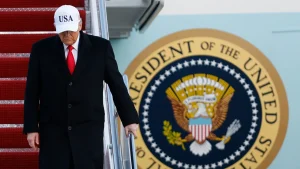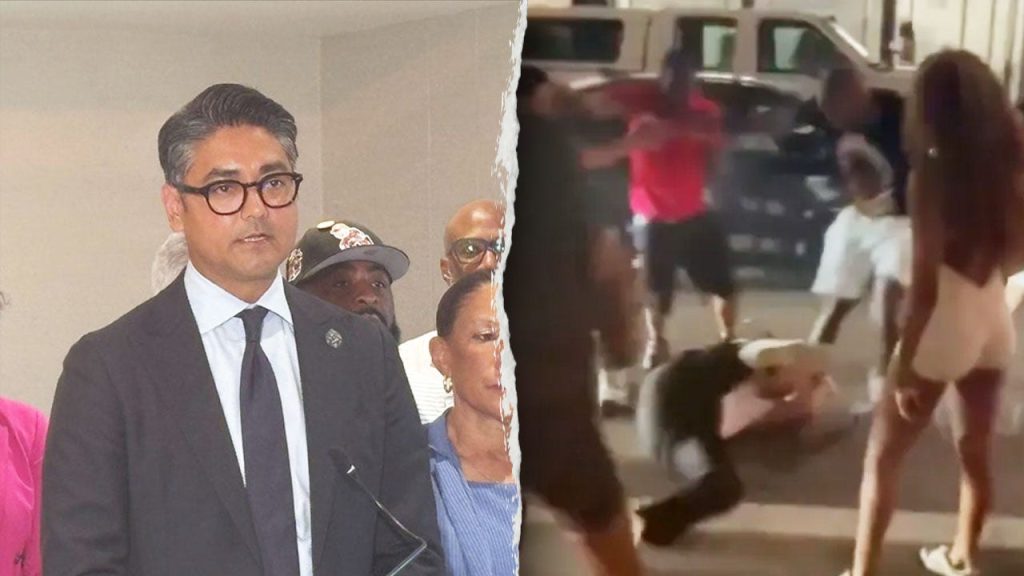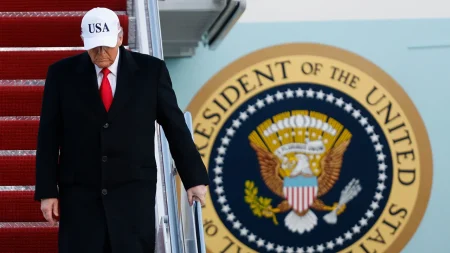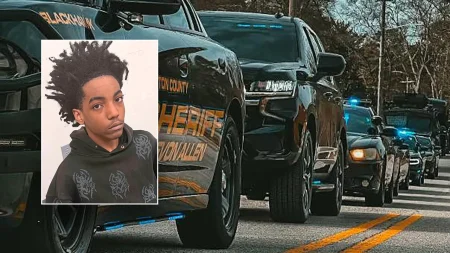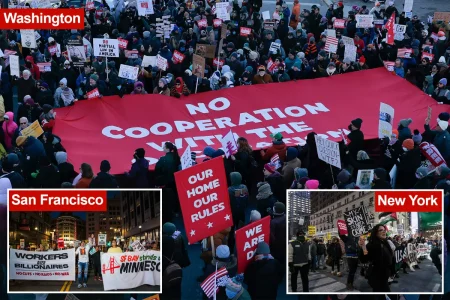Cincinnati Police Union Unanimously Votes No Confidence in Mayor Amid Fallout from Viral Assault
In a decisive and unprecedented move, the Cincinnati Fraternal Order of Police (FOP) Lodge 69 has unanimously cast a vote of no confidence against Mayor Aftab Pureval. This dramatic action stems from what police representatives describe as a series of leadership failures over the past month, particularly surrounding the aftermath of a violent brawl that went viral on July 26. The incident, which saw several individuals viciously attack others on a Cincinnati street, captured national attention and sparked debate about public safety and criminal justice in the city. FOP President Ken Kober didn’t mince words when explaining the union’s position, stating that the mayor’s leadership “has fallen short in supporting the men and women who protect this city every day.” The vote represents a significant breakdown in the relationship between the city’s law enforcement and its highest-ranking official.
At the heart of the controversy is the mayor’s handling of the July 26 assault case, which police representatives argue demonstrates a disturbing pattern of political interference in law enforcement matters. The FOP specifically criticized Pureval for his delayed response to the violent incident—he remained on vacation in Vancouver for three days before addressing the situation that was already gaining national attention. This perceived absence during a critical moment for the city left many officers feeling abandoned and unsupported. The union’s frustration intensified when, according to their statement, the mayor allegedly directed the city solicitor to charge one of the victims of the attack, 45-year-old Alex Tchervinski, with disorderly conduct. Tchervinski, who is white, was seen in the viral video slapping one of the perpetrators, but his attorney contends this was after he had already been struck in the head 28 times while trying to protect his girlfriend and a friend during the chaotic melee.
The decision to charge Tchervinski has become a flashpoint in this dispute, with the FOP characterizing it as a politically motivated move “solely to appease racial tensions at the urging of a few community leaders.” Kober didn’t hold back in his assessment of the situation, calling it “the most egregious” example of political meddling he’s witnessed in his career. “Overruling law enforcement and prosecutors for cheap political points is a disgraceful stain on our city,” he stated, reflecting the depth of frustration felt within the police ranks. The union’s concerns extend beyond this single incident, however. They also pointed to the mayor’s failure to condemn city contractor Iris Roley, who was reportedly accused of interfering in a separate police investigation earlier this month, further eroding trust between city leadership and law enforcement.
The case that sparked this conflict has resulted in serious charges against seven individuals allegedly involved in the brutal assault. Six suspects—Patrick Rosemond, Jermaine Mathews, Montanez Merriweather, DeKyra Vernon, Dominique Kittle, and Aisha Devaughn—face multiple counts of felonious assault, assault, and aggravated rioting. A seventh suspect, Gregory Wright, has been charged with aggravated riot and aggravated robbery for allegedly stealing a chain from one of the victims during the melee. The severity of the attack is underscored by the fact that two of the suspects are now facing additional federal charges: Merriweather for being a felon in possession of a firearm, and Mathews for narcotics-related offenses including conspiracy to distribute fentanyl and operating a drug trafficking location.
This vote of no confidence signals a significant rift in Cincinnati’s governance structure at a time when cohesion between city leadership and law enforcement is particularly crucial. The police union’s grievances reflect deeper concerns about the politicization of law enforcement, perceived inconsistencies in the application of justice, and what they view as inadequate support from city hall. While the vote itself carries no official power to remove or sanction the mayor, it represents a powerful symbolic statement about the state of relations between these two essential pillars of city governance. The public display of discord raises important questions about how the city will address violent crime, maintain public safety, and ensure fair application of the law while navigating the complex social and political dynamics that inevitably influence urban governance.
As Cincinnati grapples with the fallout from both the violent incident and this institutional conflict, residents are left wondering about the path forward. Mayor Pureval’s office has not yet issued a formal response to the vote, leaving questions about how—or whether—the administration plans to address the police union’s concerns. The situation highlights the delicate balance city leaders must maintain between responding to diverse community needs, supporting law enforcement, and ensuring justice is administered fairly and without political influence. How Cincinnati resolves this tension between its police force and mayor could have implications not just for public safety in the city, but potentially serve as a case study for other urban centers facing similar challenges in the complex landscape of modern municipal governance.

